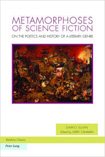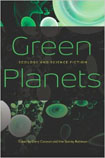Behold, the Mother of All Saturday Linkdumps!
* Polish President Lech Kaczynski has apparently been killed in a plane crash in western Russia, alongside much of the leadership of the country. Updates at MeFi.
* Yesterday Stevens made it official. The timeline. A shortlist. The politics of shortlists. An offbeat shortlist. How about Cory Booker? Why Obama shouldn’t shy away from a confirmation fight. Why Glenn Greenwald is lukewarm on frontrunner Elena Kagan. Why the GOP may use the SCOTUS hearings as another excuse to freak out about health care. Or maybe just another excuse to flip out period. Still more at MeFi.
* Totally independent of anything anyone anywhere has said or done, threats against members of Congress have increased threefold in recent months. It’s a funny coincidence that means absolutely nothing.
* George W. Bush, Dick Cheney and Donald Rumsfeld covered up that hundreds of innocent men were sent to the Guantánamo Bay prison camp because they feared that releasing them would harm the push for war in Iraq and the broader War on Terror, according to a new document obtained by The Times.
* Everything old is new again: Gingrich says Republicans will shut down the government if they take over.
* Tony Judt on crisis, neoliberalism, greed, the end of history, and the need for a new New Left.
For thirty years students have been complaining to me that “it was easy for you”: your generation had ideals and ideas, you believed in something, you were able to change things. “We” (the children of the Eighties, the Nineties, the “Aughts”) have nothing. In many respects my students are right. It was easy for us—just as it was easy, at least in this sense, for the generations who came before us. The last time a cohort of young people expressed comparable frustration at the emptiness of their lives and the dispiriting purposelessness of their world was in the 1920s: it is not by chance that historians speak of a “lost generation.”
If young people today are at a loss, it is not for want of targets. Any conversation with students or schoolchildren will produce a startling checklist of anxieties. Indeed, the rising generation is acutely worried about the world it is to inherit. But accompanying these fears there is a general sentiment of frustration: “we” know something is wrong and there are many things we don’t like. But what can we believe in? What should we do?
* Full with polls: The IRS is more popular than the tea partiers.
* “Kind of a Glenn Beck approach”: On male studies. More at Salon.
* Another great segment from the Daily Show about blatant Fox News dishonesty, this one on the lies they’re telling about the START treaty. But the quote of the day on this comes from who else but Michele Bachmann, who calls for the U.S. to commit to nuclear retaliation in the event of a devastating cyber attack.
* Matt Yglesias on Treme‘s battle between realism and sentimentality.
* Comic book cartography. Their link to the principles of Kirbytech from my friends at Satisfactory Comics is pretty great too.
* Could our universe be located within the interior of a wormhole which itself is part of a black hole that lies within a much larger universe? I’m surprised there’s even debate about something that is so trivially true.
* Negative Twenty Questions, John Wheeler’s analogy for quantum mechanics.
* Of all the people in human history who ever reached the age of 65, half are alive now. Welcome to the elderly age.
* Multicellular life found that can live entirely without oxygen.
* xkcd’s version of hell is now fully playable.
* Chris Christie working overtime to destroy public universities in New Jersey.
* In Washington, D.C., you’re not a rape victim unless police say so. Via Feministe.
* HIV-positive Michigan man to be tried as bioweapon.
* Are we still waiting for the other shoe to drop on Greece?
* The Texas miracle? Wind power in an oil state.
* Two from Krugman: Building a Green Economy and Al Gore Derangement Syndrome.
* Somewhat related: Tim Morton on hyperobjects.
Hyperobjects are phenomena such as radioactive materials and global warming. Hyperobjects stretch our ideas of time and space, since they far outlast most human time scales, or they’re massively distributed in terrestrial space and so are unavailable to immediate experience. In this sense, hyperobjects are like those tubes of toothpaste that say they contain 10% extra: there’s more to hyperobjects than ordinary objects.
* The Illinois Poison Control Center has a blog. MetaFilter has highlights.
* And Gizmodo has your periodic table of imaginary elements.
Written by gerrycanavan
April 10, 2010 at 1:34 pm
Posted in Look at what I found on the Internet
Tagged with academia, airplanes, Al Gore, anti-feminism, Barack Obama, biology, blogs, Chris Christie, climate change, comics, Cory Booker, crisis, cyberterrorism, Daily Show, David Simon, disaster, ecology, Elena Kagan, eliminationism, end of history, energy, Fox News, Greece, greed, Green Recovery, Guantánamo, health care, Hell, HIV and AIDS, How did we survive the 1990s?, How the University Works, hyperobjects, Jack Kirby, John Paul Stevens, Krugman, Krypton, lies and lying liars, male studies, many worlds and alternate universes, maps, Michele Bachmann, neoliberalism, New Jersey, New New Left, New Orleans, Newt Gingrich, nuclearity, oil, periodic tables, poison control, Poland, politics, polls, quantum mechanics, rape culture, realism, Republicans, Satisfactory Comics, science fiction, sentimentality, student debt, Superman, Supreme Court, taxes, Tea Party, television, Tetris, Texas, the cosmos, the elderly, Tim Morton, Tony Judt, Treme, violence, war on terror, Washington D.C., when you stare too long into the abyss the abyss stares back into you, wind power, xkcd











Leave a comment